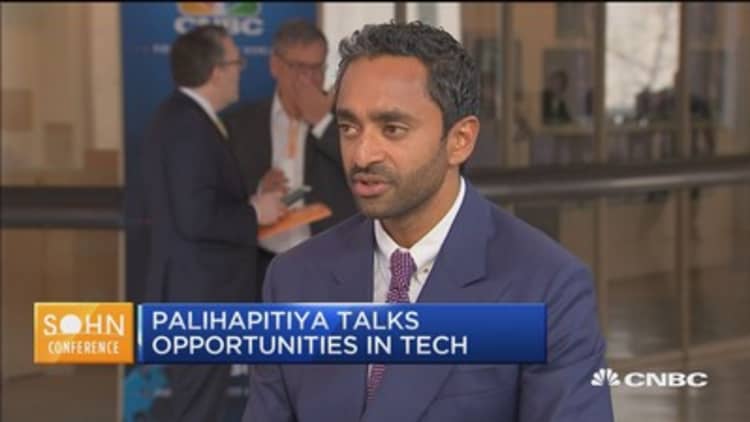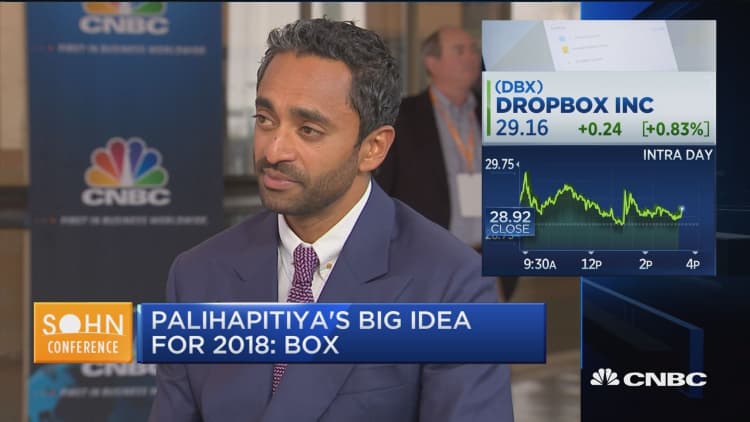
Technology investor Chamath Palihapitiya is very bullish on tech companies that can capitalize on the rise of artificial intelligence, such as Google and Box — but they must keep personal information safe or regulators will have to come in and do it for them, he told CNBC's "Closing Bell" on Monday.
Palihapitiya, a former Facebook employee, said that a handful of private companies have the same level of information about people as government agencies such as the IRS. Once people "internalize" that, he said, the same level of regulation might apply to tech companies and government agencies.
"It's an enormous threat. When someone gives you free software, or free in general, you have to ask yourself, am I the customer? A customer has rights," Palihapitiya said.
Palihapitiya made the comments as his former employer is dealing with backlash over its data protection. Some of Facebook's critics, including Apple CEO Tim Cook, have homed in on Facebook's business model, saying it makes the customers the product.
Palihapitiya said he spoke with Sheryl Sandberg, Facebook's chief operating officer, over the weekend.
"I think these guys are doing the right thing," Palihapitiya of Facebook's work on privacy. While figuring out how to protect data is "super hard" and "nuanced," he said he's confident that the company will figure it out.
In fact, he said he disagrees with legendary investor Jeffrey Gundlach, who said on Monday that he'd bet against Facebook in the market.
"We can agree to disagree," Palihapitiya said, citing Facebook's "vibrant revenue growth."
Palihapitiya has been outspoken on new technologies and investment opportunities such as artificial intelligence and blockchain. Earlier Monday, the Social Capital CEO said Box is his pick from his portfolio, based on the company's position to support artificial intelligence applications.
Palihapitiya said Box is really one of a handful of companies that make a good artificial intelligence investment, as it has big contracts and high retention rates compared with consumer-facing competitor Dropbox.
But he also cautioned that while artificial intelligence could become a huge market, it could also destroy the market value of, and potentially jobs at, legacy businesses.
"I think that's where we have a different type of conversation .... to be more humane," he said.



